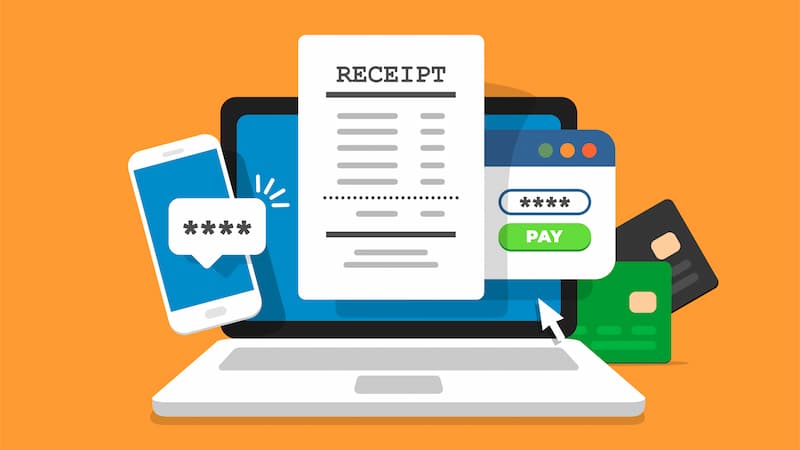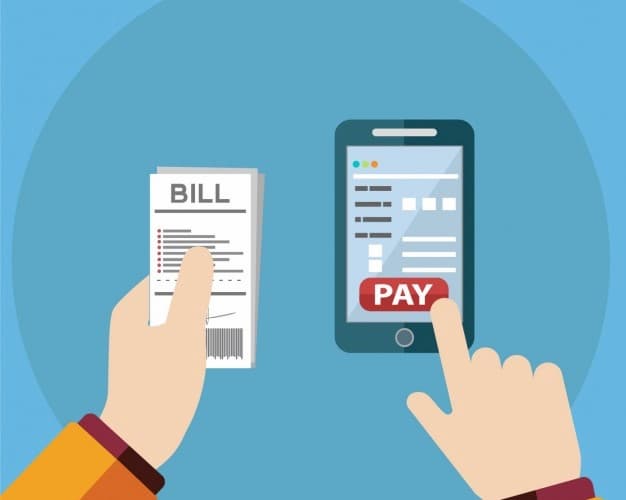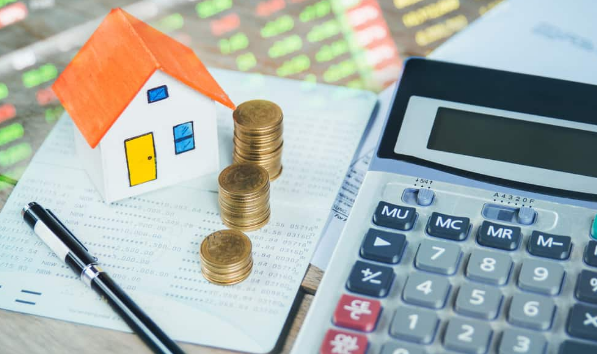
To start with, what is bill pay?
Bill Pay is an online bill payment service that allows you to simply and conveniently pay a business or person within the United States. When and to whom you want to make a payment are decisions that you make.
You can also save time and money by using BillPay’s Payment Center, which stores all of your payment information.
For more information, continue reading.
Table of Contents
What Is Bill Pay?
In the US, almost any bill can be paid in this simple, secure manner. You can avoid the inconvenience of writing checks or going to numerous websites to pay all of your bills by using Regions Online Bill Pay. You also gain:
- The ability to choose the payment date and amount to pay a bill from your eligible checking and/or money market account
- The opportunity to receive copies of your merchant bills
- Using Regions Mobile Banking or Online Banking, it is simple to add payees and pay bills.
How Does Bill Pay Work?
No matter which financial institution you are using, the overall procedure for online bill payment is quite straightforward. You must decide, among other things, whether you want to use the service for periodic one-time payments or want to have all of your bills paid automatically from one place.
Alternatively, if you feel it would help you keep a better track of where your money is going and when, you might decide you would prefer to pay each bill manually as opposed to automatically. However, it is frequently possible to set up email or text alerts to notify you when a bill is due and when it has been automatically paid. This makes it simple to keep track of every payment for your records.
A lot of bill payment services offer a lot of customization options. For instance, at Wells Fargo, you can set up autopay, monitor your bill payment due dates, view your payment history, and even sign up to receive eBills from businesses that support them. Additionally, you can always add new one-time and recurring payees.
Pros & Cons Of Bill Pay Services
Pros
- It’s convenient: The organization and payment of all of your bills can be done through bill pay services, which will make your life easier. If you prefer, you can log onto your bill pay provider and manage all of your bills from one location rather than having to use multiple websites and apps.
- A digital trail is provided. Usually, a receipt or record is generated automatically when you pay your bills online. This can be useful if you need proof that a payment was made to a specific business or if you are unsure whether you have paid a specific bill.
- It assists you in avoiding fees: Setting up automatic bill payments through your bill-pay service is one simple way to avoid late payment penalties. You can never simply forget to pay a bill when bill payments are automated.
- It respects the environment: You can completely avoid writing physical checks and using traditional envelopes and stamps if you use automatic bill pay.
Cons
- It’s not always fast: Despite the fact that most businesses accept online payments, some might not. For instance, a lot of landlords continue to only accept paper checks. You can request that your bank or credit union send a check to the payee or merchant if they do not accept electronic payments. To avoid being late, you should schedule payments in this situation at least five business days in advance.
- An overdraft may result from it: Occasionally, fees that are not expected can result from automatic payments. You might incur charges if your bank account is insufficiently stocked to cover a payment. Therefore, make sure you always have enough money in your bank account to cover your upcoming obligations.
- It does not necessarily include changes to the amount of the bill: You run the risk of not paying off your balance if you have a bill that changes but your automatic payments are set to a fixed amount. If you don’t pay attention to how the bill changes, you might also be charged late fees.
- You might worry about your safety: There is a chance of hacking, which is not a concern with the traditional, stamp-and-envelope method, so some people might be hesitant to pay their bills or conduct banking transactions online. However, websites now make use of security features like complex passwords and multifactor authentication to help protect your data because online banking and financial transactions are so widespread. Although it’s always possible to get hacked, as with anything online, using bill payment services should be generally safe.

Where Can I Find Bill-paying Services?
Your Bank Or Credit Union
Through your bank or credit union, one of the best ways to use a bill-pay service. Chase, Wells Fargo, Discover, Bank of America, and Ally are just a few of the major financial institutions that provide this service. As long as you have an open checking account with a bank or credit union, the majority of bill payment services are free.
Bill Pay Apps Or Software
You can pay your bills using a bill-paying app or piece of software as well. Additionally, you might already be using software like Quicken, making that choice simple.
- Quicken Bill Manager: Use Quicken Bill Manager (previously known as Quicken Bill Pay) if you use Quicken to pay your bills. The cost of Quicken, which includes Bill Manager, starts at $77.99 per year, so if you’re not already a user, this might not be your best choice.
- Mint: Paying bills is available through the free budgeting app Mint. There will be an additional cost if you pay your bills with a credit card.
- Prism: Another free app with a bill-paying feature is Prism. Prism warns that some of your billers might charge you a fee if you use an external bill-pay app as opposed to your bank or credit union. Prism displays the most affordable option for each listed bill first when it comes to these fees.
Merchants And Service Providers
The majority of businesses and service providers, including phone companies, mortgage lenders, and utility companies, also provide bill payment options directly, so you don’t need to go through a bank, credit union, or other third party. If you prefer to pay bills on their individual websites one at a time rather than all at once, this might be a good option for you.
For instance, Verizon customers can pay their bills online or using the company’s app. Through its Fios TV cable box, you can also pay bills. If Frontier is your internet service provider, you can also make a payment through their website or app. This might also be possible for payments to your electric company, credit card companies, and other entities. This is a benefit of doing everything through a single website, but it’s not as convenient as paying all of your bills using one bill pay service. See more about What Is A Cashtag?
How Do I Set Up Bill Payment?
Your initial setup work may take some time, but it will ultimately save you time and headaches. Although each bank or credit union will have its own policies, generally speaking, this is what you need to do to set up bill pay:
- assemble your bills, note the account numbers, and note the mailing addresses for the payments.
- The online bill-pay system at your bank needs the information from each biller.
- When to send the payment is up to you.
- Choose between recurring and one-time payments.
- To keep track of each bill’s due date, set reminders.
You can keep track of due dates and organize your bills using online bill payment. Additionally, it makes it simpler to track where your money is going, enabling you to confirm that you have enough money on hand to make each payment. You receive and pay your bills through your bank in one list and location.
Is It Safe To Pay Bills Online?
An online bank account comes with the ability to pay bills online, and these accounts are generally very secure. Website encryption, alerts for suspicious activity, and multifactor authentication are just a few of the ways that banking sites protect your accounts.
Online bill payment also lowers the possibility of phishing, a scam in which con artists send false emails to victims in an attempt to trick them into making a payment. According to Boston-based Paceline Wealth Management founder Jeremy Bohne, if someone has online bill pay set up, they won’t receive emails asking for payments because all bills are handled through the online account.
Nevertheless, Bohne cautions that even if they have online bill pay set up, some people might not check their monthly statements. “The majority of fraudulent charges are simple to spot when reviewing a statement, but if people don’t do that, they might miss it and the window for disputing a charge may have already passed,’ he says.
Reviewing your statements frequently and setting up notifications for when a bill payment is charged will help you reduce the chance that you will miss any suspicious charges.
The End
Sending checks through the mail is a time-consuming and unsustainable alternative to online bill payment. It is simpler to remember when payments are due because both upcoming payments and payment history are accessible in one location.
If your account doesn’t have enough money to cover an automatic payment, there is a risk of overdrawing it; however, this can be easily avoided by regularly checking the balance or enrolling in overdraft alerts. Online bill pay can make managing your bills more convenient and secure if you avoid overdrafts and regularly review your statements to check for fraudulent charges.
I’d like to thank you for reading.


![Best Banks In California Top 11 Picks [2022]](https://www.findmybank.com/wp-content/uploads/2022/11/Best-Banks-In-California-Top-11-Picks-2022.jpg)